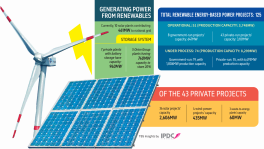Coping strategy needed for export sector to get back to business

The prolonged lockdown is having detrimental impact not only on export-oriented sectors but virtually all sectors of the Bangladesh economy and business, including import-substituting and domestic market-oriented industries, enterprises and activities. The evolving scenario is both a health crisis and an economic crisis. The export sector has been particularly vulnerable in view of this because of the concerted attack from the both demand side and supply side challenges.
Export earnings were in the negative terrain even before the government enforced the lockdown. At the initial stage of the pandemic in January-February, it was mainly the demand side constraints which afflicted key export destinations of Bangladesh, primarily in the EU and North America, leading to deferment of export orders for apparels, and then cancellations. Compounded by the supply-side problems, the situation started to worsen further with production disruptions when economic activities came to a standstill as lockdown took effect on March 26th.
In the month of March export earnings declined by 18 per cent compared to March of previous year even though factories were able to operate for first three weeks of the month, but then export items could not be shipped. While April earnings figures are not yet available, it is safe to anticipate that the fall will be much more drastic, and on an unprecedented scale, as production grounded to a halt.
While the trade-off between health concerns and economic imperatives does not hold ground in a pandemic, it can not be denied that for the poor, the marginalised and the disadvantaged, life and livelihood concerns are interlinked. The lockdown will need to be gradually phased out at some point in time. Many countries across the world are easing the lockdown and reopening economic activities in line with improvements on the health front after hitting the peak. A crucially important challenge facing Bangladesh's policy makers is to decide on an appropriate time to open up economic activities, albeit gradually.
Some apparel factories have already resumed production on a limited scale. However, steps to reopen factories must be taken in view of public health demands, and backed by opinion of experts, in order to lower risks of the contagion not only in the industrial zones but also on a wider scale. Safety measures to take care of all involved, including industrial distancing, testing and tracking and availability of emergency response, will need to be put in place. The taskforce constituted by the government to review the state of the pandemic and recommend options ought to also include workers' representatives. This will help avert any misunderstanding and confusion over reopening of factories. This relates to not only apparels, but also other export-oriented industries. Greater transparency here is in the interest of workers (health concerns), entrepreneurs (sustainable opening of enterprises) and the government (law and order scenario).
As is known, the government has announced stimulus packages for industries in the form of credit at subsidised interest rate and also some targeted interventions exclusively for the apparels sector. There are other supportive measures such as the scope of deferred payment against LCs, reduction in LC margins and deferment of loan payments. Time has come to undertake a review of these measures to identify bottlenecks, and difficulties faced by entrepreneurs in view of targeting, access and implementation of the schemes. If required, steps towards mid-course corrections should be undertaken in this regard. While lockdown has necessitated adjustments and coping strategies to be pursued at the enterprise level, the recovery phase will call for support beyond working capital to help businesses to be back on track.
As far as apparels (and also some of the other export-oriented sectors) are concerned, global brands will need to play a more responsible role. In line with requirements of buyers and brands, Bangladesh's entrepreneurs have invested significantly to ensure compliance following the Rana Plaza tragedy. In these difficult times, the brands must stand by their partners here in Bangladesh to demonstrate that there is no hypocrisy between ethical buying and ethical sourcing. Global retailers such as H&M and Target have come up with an initiative of solidarity with their respective suppliers. This is a welcome initiative and others should join it. Order cancellation and asking for discount to take advantage of the emergent situation and the vulnerabilities facing the suppliers in Bangladesh must be challenged, here and in relevant global fora. Brands and buyers must stand by their suppliers during the recovery phase and should be guided by the spirit of the Global Compact which is an initiative launched to encourage corporations and businesses to volunteer their commitment to help attain the sustainable development goals (SDGs) by 2030.
Careful attention will need to be given to the dynamics of product and market changes concerning our exports. The pandemic will likely leave its footprints on the demand scenario, with structure of export market and products undergoing changes in view of demand side repercussions and income erosion of consumers in key markets. The anticipated global recession and the economic downturn in major export destination countries do not augur well for our country. However, demand for some items such as PPE could go up and consumers could go more for lower-end products. The shifting dynamics of US-China relationship will also affect market dynamics. The demand scenario across the different export-oriented industries will vary, and this will need to be taken into cognisance while designing support for the different export-oriented sectors during the recovery phase.
However, at the moment it should be health and safety concerns which should get the priority and will need to inform decision as regards opening up the enterprises and the industries. It needs to be kept in mind that there is a mismatch as regards the spatial dimensions of the pandemic. While most destination countries in the EU and North America appear to have crossed the peak stage, experts apprehend that Bangladesh is only entering this phase. Consequently, as far as the export sector is concerned there is a lack of correspondence between demand side response in key markets (opening up) and supply-side response in countries such as ours (health risks deepening). In view of the western countries gradually opening up, there may be a pressure to come up with supply side responses at our end. In view of this emerging reality, the cause of safety should not be compromised. It is the responsibility of the government to strike the right balance in this regard.
Professor Mustafizur Rahman is an Economist and Distinguished Fellow of Centre for Policy Dialogue (CPD).


 Keep updated, follow The Business Standard's Google news channel
Keep updated, follow The Business Standard's Google news channel















